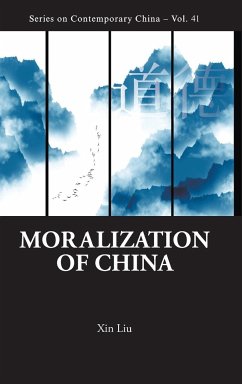Alongside China's vast material development, there came a change of its mental habits, largely affected by the technological revolution in the means of mass communication. This book shows how such a change has brought - and yet been brought by - a new form of pictorial thought, essentially sensuous and imagery, which is suggesting a possible future for the world. Today's China is different from what it used to be; the Maoist years appear, even to the official mind, an absurdity; and this difference is evident in the replacement of the Maoist mass-politics by what should be called "Moral politics", which is petty and personal. It is the moralizing practice that characterizes today's China, when the birth of so-called "ordinary people", taken as a collection of individual authors of their own private lives and personal stories, became an acknowledged social fact, proliferating in all kinds of mass media. This study traces the birth of "ordinary people" to the beginning of the century, when the reformation of the political in terms of personal dilemmas or moral groans began. From the beginning of this century, the moral content of Chinese politics is more and more fulfilled by such as problems of marriage or sexual affairs. In other words, this is participant observation of an affective change in the Chinese mind, where and when sociology became photographic, i.e. the photographer a natural sociologist, and the mold of Facebook or Wechat communication has reshaped the ideographic tradition of its writing system. This is yet another "Cultural Revolution" on the ruins of the Maoist revolution.
Hinweis: Dieser Artikel kann nur an eine deutsche Lieferadresse ausgeliefert werden.
Hinweis: Dieser Artikel kann nur an eine deutsche Lieferadresse ausgeliefert werden.








